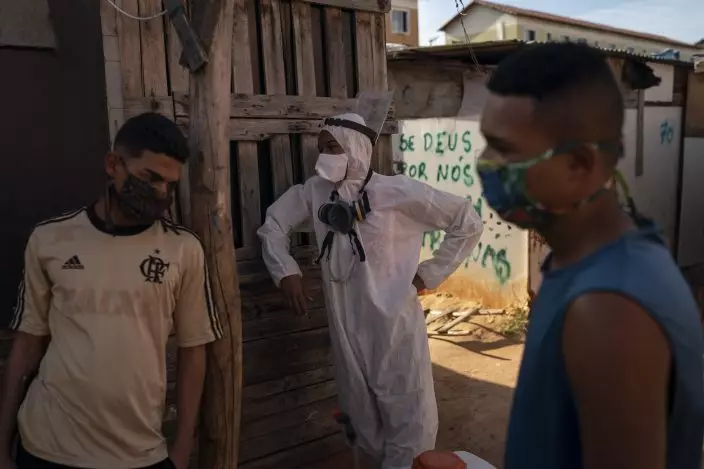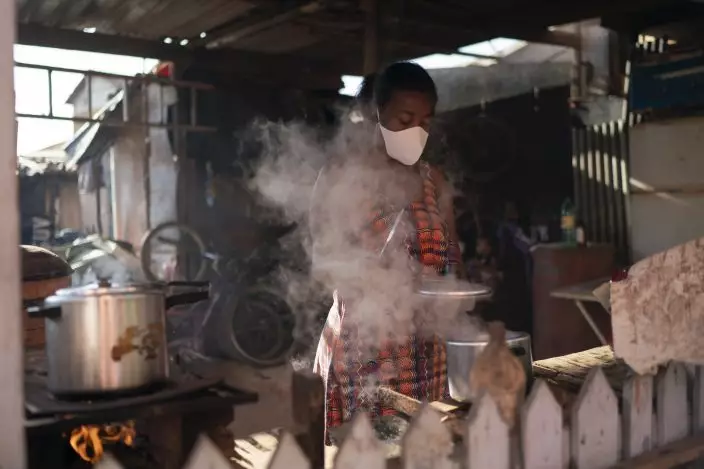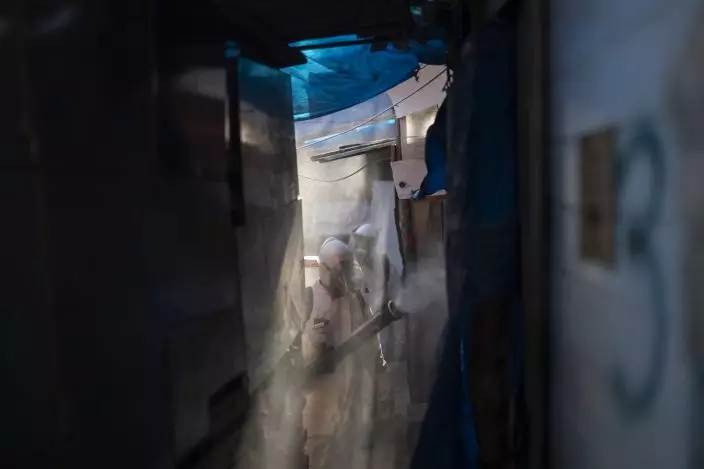The Brazilian government announced on Saturday an agreement with Oxford University and pharmaceutical company AstraZeneca to produce a promising coronavirus vaccine that is undergoing tests.
Brazilian Health Ministry authorities said in a press conference that the country will pay $127 million and receive material to produce 30.4 million doses in two batches in December and January, which would allow it to quickly start inoculation efforts if the vaccine is certified to be safe and effective.
The total deal is for 100 million vaccines for a country of about 210 million residents. It will be produced by local vaccine maker Fiocruz.

Volunteer Welington Goncalves, center, takes a break from sanitization duties to help contain the spread of the new coronavirus in an area occupied by squatters in a poor region of Rio de Janeiro, Brazil, Friday, June 26, 2020. For the 21-year-old volunteer, who lives in this occupation, the sanitization is a way to avoid the COVID-19 and if it was not for him and other volunteers working on it, "the situation would be worse". (AP PhotoLeo Correa)
The first to get the Oxford shot would be high-risk groups such as the elderly, people with comorbidities and health and security professionals.
Arnaldo Correia de Medeiros, secretary of health surveillance, said distribution will be fast because of Brazil’s public health care system. “This country has extensive experience in extremely fast vaccination”, he said.
British researchers started testing the experimental shot in May aiming to immunize more than 10,000 people, including older people and children. The vaccine is one of about a dozen in the early stages of human testing.

Simone Santos cooks lunch for her family in an area occupied by squatters in a poor region amid the outbreak of the new coronavirus in Rio de Janeiro, Brazil, Friday, June 26, 2020. Santos, who is 45-years-old and unemployed and lives with 9 others, says it is difficult not to get infected even maintaining a distance. "I am coughing and I feel tired, but there's no way to know. I just use the mask to protect myself and the other people," says Santos. (AP PhotoLeo Correa)
Brazil, where coronavirus infections are still on the rise, counts more than 1 million confirmed cases and more than 55,900 fatalities.
Vijay Rangarajan, the British ambassador to Brazil, told The Associated Press on Tuesday the vaccine maker has the capacity to produce 2 billion doses in its first batch, which is expected by the end of the year. But much of that global production is already purchased.
On May 21, the United States announced a deal for at least 300 million doses of the Oxford shot and committed up to $1.2 billion to the effort. On June 13, AstraZeneca agreed to supply up to 400 million doses of the experimental vaccine to European Union nations. Other negotiations are ongoing with Russia and Japan, among other countries, the company’s CEO said this month.

Volunteers spray disinfectant in an alleyway to help contain the spread of the new coronavirus in an area occupied by squatters in a poor region of Rio de Janeiro, Brazil, Friday, June 26, 2020. In this occupation, known in Portuguese as, "United We Will Win", about 200 families live in precarious conditions, with no proper sewage, where shacks are packed tightly together and the people have to share three communal bathrooms and a kitchen. (AP PhotoLeo Correa)
Another experimental vaccine in development by Chinese company Sinovac Biotech will be tested in Brazil in July, according to the Sao Paulo state government. Sinovac has a deal with the state’s Instituto Butantan to produce it. Some 9,000 Brazilians are expected to participate.


